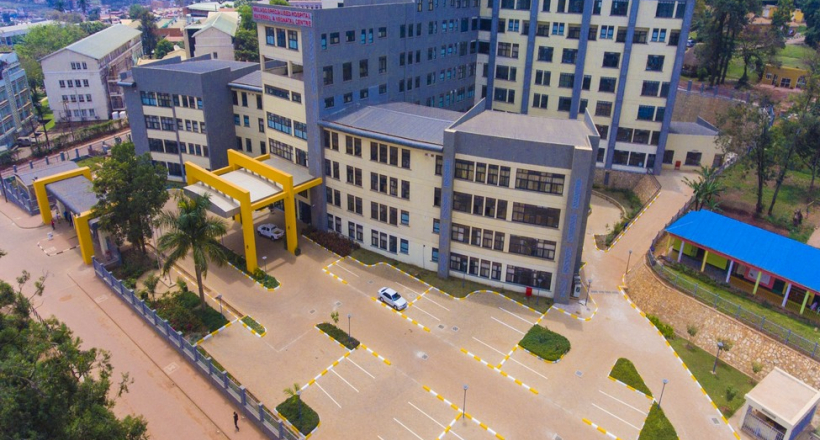
For the last 35 years the NRM has sailed Uganda through the most violent and turbulent storms. Through this time, NRM has been tried, tested and found worthy of continued leadership of this country.
Today, the focus of the NRM government is to steer the country to sustainable economic development and growth. In this regard, the party identified wealth and job creation, delivering education and health, ensuring justice and equity, protecting life and property and achieving economic and political integration as the five priority areas of focus.
Already, tremendous results are visible. Uganda, under President Yoweri Museveni’s leadership, has registered steady progress in all sectors of the economy. The size of the economy has grown close to tenfold since 1986. The GDP per capita has also increased. Ugandans today live healthier and longer lives. They are better educated. Children no longer die of preventable diseases and are attending school free of charge. Infrastructure has tremendously improved. The total tarmacked road network has increased fivefold. Electricity generation is no longer a problem. Our challenge now is transmission, distribution and cost. Telecommunication has improved, almost every adult has a phone.
Focusing on health, The health of Ugandans is one of NRM’s top priorities, upholding health as wealth. It is the belief of the NRM government that in order to achieve the total well-being of the nation, her citizens must be healthy. Under NRM, Ugandans are assured of a longer lifespan because of better maternal healthcare, immunisation programmes as well as the aggressive campaigns against malaria and HIV/AIDS control campaigns.
NRM will continue to invest in the health infrastructure across the country in order to achieve the goal of a modern and resilient healthcare system, which is responsive to the needs of all people.
NRM takes credit for its effective handling of highly infectious diseases, including Ebola, Marburg and COVID-19. We will continue to emphasise prevention through mass sensitisation campaigns regarding personal hygiene and the adoption of healthy lifestyles.
Uganda, like many countries around the world, has had to respond to the onslaught of the coronavirus pandemic. The Government viewed COVID-19 as a fearless foe of human life, which needed to be confronted with proper messages and decisive action. The approach to dealing with the pandemic prioritised the protection of human life.
The Government, as a first pragmatic step, developed guidelines and standard operating procedures (SOPs) to align and standardise its response through combined systematic testing, tracing, quarantining and treating with restrictions on movement and contact — aiming at suppressing the transmission of the virus.
The country has registered an increase in the number of adults and children on ART achieving 89% coverage (1,241,509/1,400,000) from 86% (1,198,445/1,393,445). HIV positive pregnant women not on HAART receiving ARVs for eMTCT during pregnancy, labor, delivery and postpartum increased to 94% (30,113/32,036) from 91% (29,475/32,485) in 2018/19. The ART retention increased to 78% from 76%.
TB treatment success rate has increased by 8.3% i.e. from 72% in FY 2018/19 to 78%. Deaths due to TB have reduced from 19% to 14% and lost to follow up also dropped from 15% to 8%. Multi-Drug Resistant TB treatment sites have increased from 15 to 17 and the country also has built capacity for testing for extensively drug resistant. TB using second line molecular tests like Line Probe Assay S-LPA) in addition to routine culture and DST.
As part of the interventions to address the increased Malaria cases, the Ministry of Health is currently undertaking the 3rd Universal Coverage Campaign to distribute long lasting insecticide mosquito nets to all households across the country. So far, 92 districts have been covered in three waves which commenced in August 2020.
The Government has prioritized distribution of mosquito nets as one of the most cost effective preventative measures for malaria control. Every three years, the Ministry of Health distributes mosquito nets to all Ugandans with the overall objective of reducing malaria morbidity and mortality. The reduction in malaria, as indicated in the Malaria Indicator Survey has been attributed to the use of mosquito nets.
Other interventions include: appropriate vector control and chemo prevention measures; at least 90% of malaria cases are appropriately managed in health facilities and in the communities; and communication to ensure behavioral change for malaria preventive practices, seeking treatment early and adherence to treatment using the Mass Action Against Malaria approach.
The government has on childhood immunization marked an increase of diphtheria, tetanus and whooping cough vaccination coverage for the last 5 years.
